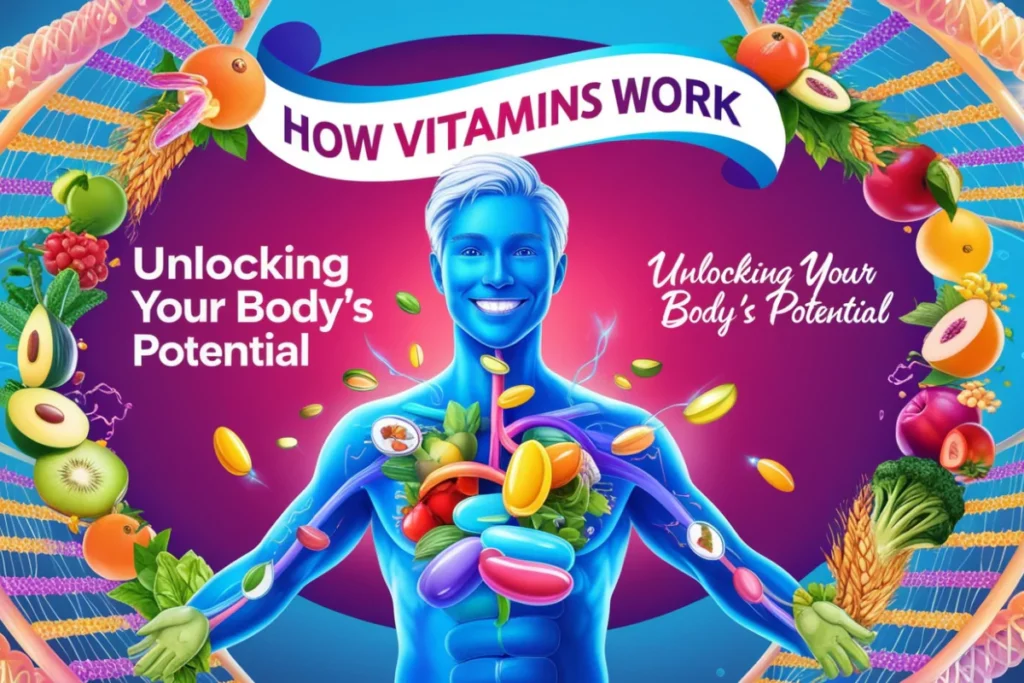Greetings to all! Have you ever pondered the importance of vitamins in our body? Vitamins are a set of organic micronutrients mostly regarded as products of rural origin. These are the trace noncaloric components available in the body to perform such a body. They are among the materials identified as nutrients and take part in the metabolism, prevention, and inter-communication of such cells and other processes.
However, this aspect of vitamins becomes vital when it comes to converting food into energy within the body. This paper will analyze a comprehensive review of the different classes of vitamins and their effects and significance to people.
Let’s get started!
Table of Contents
What Are The Vitamins

Vitamins can be divided into two broad classifications as to whether they are hydrophilic or lipophilic.
Fats Soluble Vitamins
These are certain vitamins that can be stored in the fat, liver, and fatty tissues. The following are the four vitamins that have been grouped under fats soluble:
Vitamin A
the vitamin that enables the eyes, the body’s defenses, and the skin to carry out their functions.
Vitamin D
Aids in the formation of bones and the utilization of calcium from ingested food. It is a vitamin that the body produces when one is basking in the sun.
Vitamin E
a vitamin that belongs to the group of vitamins that prevent the process of oxidation of the tissues or cells by acting as a shield.
Vitamin K
This vitamin is significant in the mechanism of blood clotting and also contributes to maintaining healthy bones.
Water-Soluble Vitamins
These vitamins are dispersed in water and are not retained within the body system. Therefore, their intake on a daily basis is needed. Some examples of major water-soluble vitamins include
Vitamin C
This particular vitamin is known for many reasons, one of which is its ability to boost the immune system and help in the synthesis of collagen.
B Vitamins
This includes B1 (thiamine), B2 (riboflavin), B3 (niacin), B5 (pantothenic acid), B6 (pyridoxine), B7 (biotin), B9 (folate), and B12 (cobalamin). These vitamins take care of energy production, brain, and thus red blood cell formation.
How Vitamins Work

Vitamins play different roles in the body, and the most important in this case is that they perform their actions as coenzymes needed in biochemical activities.
For example, the B vitamins assist in energy metabolism, including the initial metabolic processes that change carbohydrates, fats, and proteins into energy. The body uses vitamin C to make collagen, a specific protein found in skin, cartilage, and blood vessels.
In addition to this, vitamins may also enhance or inhibit biological effects together. For instance, calcium uptake is increased by the action of vitamin D, but this vitamin D has to be accompanied by vitamin K so that the calcium ingested does not get deposited in soft tissues but rather in bone structures. This includes the reason why every meal should have all vitamins, as they are all related to each other.
Sources of Vitamins
Vitamins can be obtained from food and must be present in adequate amounts within certain limits for health benefits. Thus, these vitamins are contained in fruits, vegetables, whole wheat grains, and lean meat without any fat or dairy products.
For instance, ample vitamin C can be obtained from a variety of citrus fruits, and even bell peppers, and ample vitamin A can be found in green leafy vegetables and carrots. Sometimes, the doctor might prescribe dietary supplements because of advanced age or due to certain health issues, such as the patient not being able to eat a well-balanced diet.
The following video explains about Sources of Vitamins:
Conclusion
To conclude, vitamins constitute the basic ingredients of a healthy body and well-being as a whole. They are involved in a number of processes within the body, and they function interdependently to ensure that the body performs its normal functions effectively.
Consequently, knowing the various categories of vitamins, their sources, and their roles will enable one to make the right dietary choices. Do you believe you’re consuming sufficient vitamins in your daily meals for your wellness?




